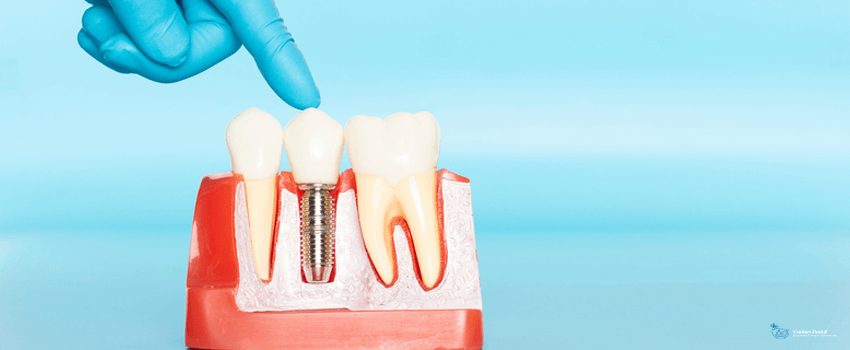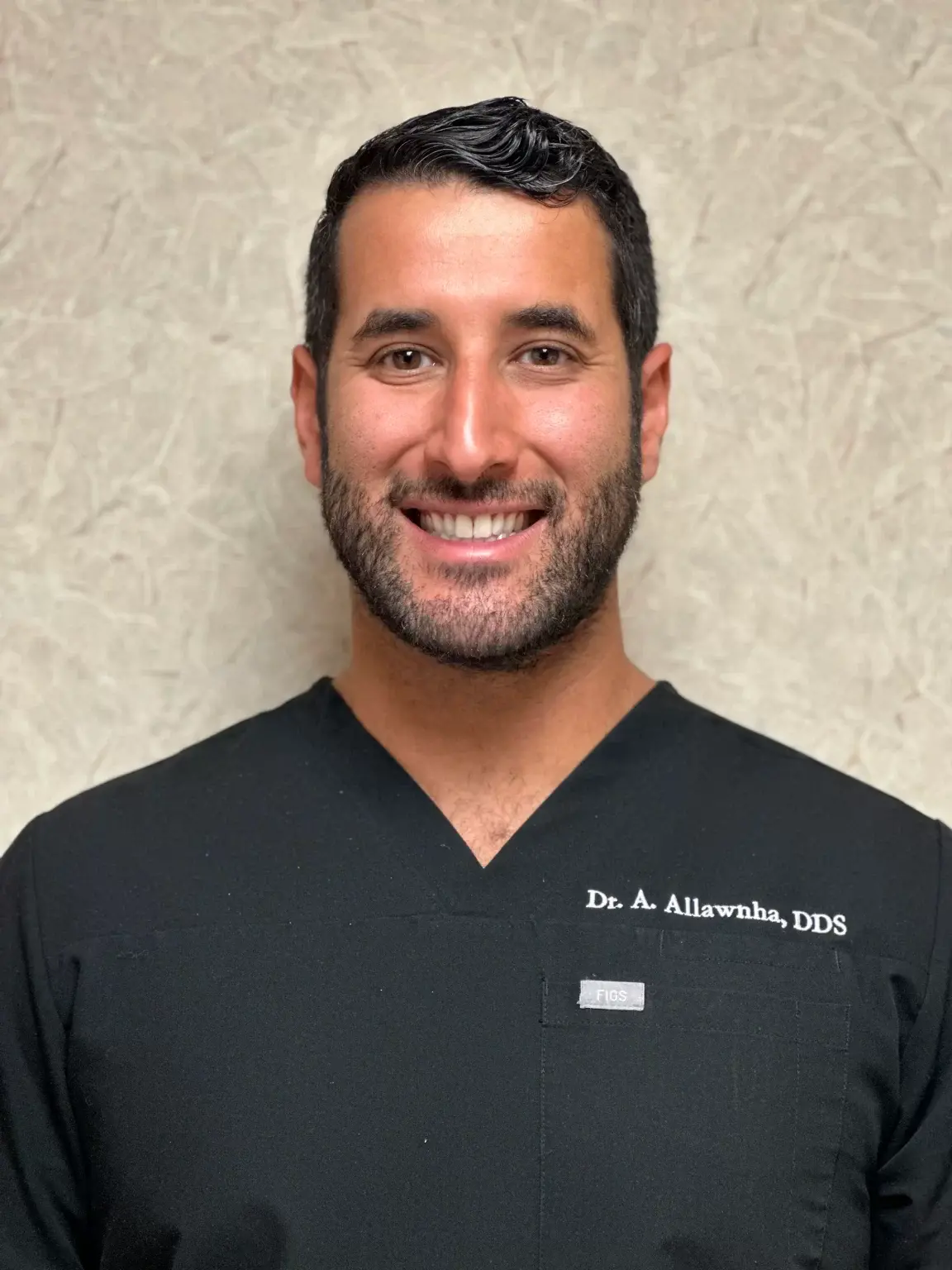If you have missing teeth, you’re probably looking to replace them. However, this might become a problem if you have osteoporosis.
Osteoporosis is one of the leading concerns for 25 million Americans, 80% of which are women. Estimates show that 7 to 8 million people in the United States have it, while 17 million are at risk for the disease.
Osteoporosis is also a concern for patients who plan to have dental implants. It can affect jawbone strength and healing, which are essential aspects of dental implant placements. This may make the connection between osteoporosis and dental implants problematic.
Can you have dental implants with osteoporosis? Here are some things you should know about osteoporosis and dental implants.
What Is Osteoporosis?
Osteoporosis is a disease characterized by a decline in bone mineral density, making bones more porous, weaker, and more susceptible to breaking. It may also progress without showing signs until bones break, especially at the wrist, hips, or spine.
Bone is a living tissue that is continuously being degraded and replaced. Osteoporosis happens when bone replacement can’t keep up with the bone loss. It can affect all races and genders. However, Caucasian and Asian women are most at risk, especially women who have gone through menopause.
Signs and Symptoms
The early stages of bone loss do not show any signs or symptoms. However, they may start to appear once the bones are weak enough. These may include:
- Bones breaking more easily than expected
- Gradual height loss
- Back pain due to a collapsed or fractured vertebra
- Hunched posture
Osteoporosis and Dental Implants
How does osteoporosis affect dental treatments like implants? Here are some of the answers to this question:
Bone Density
Bone density is a major concern regarding osteoporosis and dental implants. Poor bone mass and osteoporosis can affect oral health, and dentists often look at bone health when considering dental implants for their patients.
Osteoporosis can make the bones in your body frail and porous, including your jawbone. The jawbone should hold your teeth in place if you’re considering dental implants; otherwise, it could lead to dental implant failure.
Bisphosphonates
Dental implants and osteoporosis medications don’t go well together. Bisphosphonates like Reclast are osteoporosis medications that slow down bone loss and reduce bone thinning. Both men and women may take it, but it’s more popular among postmenopausal women.
Bone turnover is a source of debate for the poor dental implant prognosis in women taking bisphosphonates. The ongoing bone-building process is only possible if a bone has two types of cells: one that eats the old bone (osteoclasts) and one that replaces it (osteoblasts).
Bisphosphonates increase bone density by interfering with the efficiency of osteoclasts. However, this slows down bone healing in the bone surrounding a dental implant and prevents it from healing properly; osteoclasts need to break down at the old bones before new bones form around the implant.
Denosumab
Denosumab medications like Prolia and dental implants also don’t go well together. Like bisphosphonates, denosumab slows down bone loss. It does this by blocking a protein and cells to slow bone breakdown.
Osteonecrosis
Osteonecrosis is a rare complication associated with taking denosumab and bisphosphonates. It only affects 1 in 100,000 people, but your dentist may recommend you temporarily stop taking bisphosphonates and denosumab to reduce your risk.
Patients taking low doses of these drugs don’t usually develop osteonecrosis, while patients taking higher doses intravenously for bone cancer have a much higher risk.
Can You Still Get Dental Implants Even If You Have Osteoporosis?
Yes, even if you have osteoporosis, you have several options that can help you make your dental implants succeed. Your dentist may recommend a bone transplant or mini-dental implants if you have a small amount of bone loss in your jaw.
Research has also shown that the risk for patients taking bisphosphonates and denosumab remains low, with an expected prevalence of 0.1%. However, this risk increases when stronger bisphosphonates are used to treat bone cancer patients.
Another research has shown that placing implants immediately after removing your teeth has a higher success rate.
Time is of the essence when osteoporosis and dental implants are involved. It’s best to get dental implants as soon as possible if you’re in the early stages of osteoporosis; otherwise, it might be too late.
Tips on Taking Care of Your Dental Implants
Whether you have osteoporosis or not, you can help your dental implants last by:
Practicing Good Oral Hygiene
You should keep your implants and face teeth clean and care for them like your natural teeth. Use interdental brushes that slide between teeth to clean around the gums, teeth, and metal posts. Brush and floss daily, and don’t forget about mouthwash.
Visiting Your Dentist Regularly
Regular dental checkups allow your dentist to monitor how your implants are doing, give your teeth a thorough cleaning, and check for early signs of dental problems. They can also advise you on caring for your implants.
Avoiding Damaging Habits
Biting down on non-food objects, hard candies, and using your teeth to open stuff will only increase the risk of breaking your implants and natural teeth. Smoking will stain your teeth and increase the risk of gum disease. Lastly, teeth grinding may wear down your tooth’s enamel and your implant’s crowns, making a visit to the dentist necessary. Avoid these habits as well as you can.
Key Takeaway
Dental implants are one of the best ways to replace missing teeth and repair a broken smile. However, osteoporosis may make getting them a bit harder.
Osteoporosis is a disease affecting millions of Americans today, making their bones frail, porous, and susceptible to breaking. Unfortunately, it may progress without the patient noticing until their bones start breaking.
Osteoporosis may also affect dental treatments like implants. It may weaken the jawbone, and the medications used for osteoporosis and dental implants don’t suit each other because they slow down bone healing and increase the chance of osteonecrosis. Fortunately, these don’t prevent patients from having dental implants. It’s best to consult a dentist specializing in implants to help you decide.
Regardless, you should care for your dental implants to help them last. Avoid habits that can damage your teeth, visit the dentist regularly, and practice good oral hygiene.
Experience better smiles with Century Dental.
You shouldn’t have to suffer from missing teeth. Our dentist near South Pasadena offers many ways to replace your missing teeth, like dentures and bridges. Start your journey to a brighter smile and healthier teeth. Call us today.





